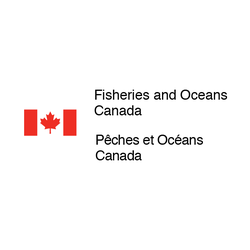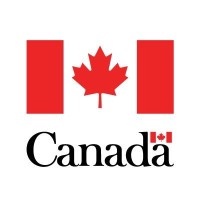
NRCAN — National Energy Systems Modelling
At a glance
- Maximum amount : 1,000,000 $
- Minimum amount : 300,000 $
- Up to 100% of project cost
- Open Date : March 20, 2025
- Closing date : June 21, 2025
- Utilities
- Professional, scientific and technical services
- Educational services
- Canada
- Non-profit
- Public or Parapublic institution
- For-profit business
- All revenue ranges
- All organization sizes
- Indigenous Peoples
- Canadians
- Startups
- Higher Education
- Research
- Environment
- Economic, Social and Community Development
- Diversity and Inclusion
- General public
- Indigenous peoples
- Rural / Remote communities
- Business owners / entrepreneurs
- Nonprofits / charities
- Academia / students
- All structures
- Local
- Municipal
- Regional
- Provincial
- National
Overview
The National Energy Systems Modelling Call for Proposals, under Natural Resources Canada's Energy Innovation Program, offers funding of up to $1,000,000 over three years to support projects focused on quantitatively modelling Canada's energy system to achieve emissions reductions and support net-zero targets. Eligible activities include national-scale techno-economic and socio-technical analyses of energy systems, incorporating innovative technologies and practices.
Activities funded
The NRCAN National Energy Systems Modelling grant supports projects that aim to quantitatively model Canada's energy system to contribute to emission reductions and the country's net-zero targets. These projects focus on harnessing innovative technologies and practices to present transparent, updated energy models for the public and decision-makers.
- Conducting national-scale techno-economic and/or socio-technical analyses to assess the role of innovative technologies in meeting climate objectives.
- Creating new models or adapting existing ones to better address the limitations concerning technological innovations and their impacts.
- Generating greenhouse gas and primary energy supply and demand projections up to at least 2070 across Canada with provincial granularity.
- Ensuring project output data is accessible through online visualization platforms to foster transparency and public discourse.
- Developing supporting reports, publications, and knowledge dissemination events alongside the visualization tools.
- Enhancing existing models with parameters for emerging or currently underrepresented technologies.
- Facilitating structural adjustments to enable the adoption of new technologies within current energy models.
- Executing modelling exercises that consider parametric and structural changes based on defined research questions.
- Making models and datasets publicly accessible by annotating data and tools before public release.
Eligibility
Eligibility for this grant is extended to a variety of legal entities and organizations including Indigenous groups.
- Legal entities validly incorporated or registered in Canada, including both for-profit and non-profit organizations.
- Community groups organized within Canada.
- Canadian academic institutions from across the nation.
- Provincial, territorial, regional, and municipal governments including their departments and agencies.
- Indigenous entities including Indigenous communities or governments, Tribal Councils or similar entities, and national or regional Indigenous councils or tribal organizations.
- Organizations majority owned and controlled by Indigenous people, whether for-profit or non-profit.
Who is eligible?
Eligible Canadian recipients include legal entities such as for-profit and not-for-profit organizations, community groups, Canadian academic institutions, as well as provincial, territorial, regional, and municipal governments and their departments and agencies where applicable. Indigenous communities or governments, tribal councils, national or regional Indigenous councils, tribal organizations, and Indigenous majority-owned and controlled for-profit or not-for-profit organizations are also eligible. The term 'Indigenous' includes Inuit, Métis, First Nation, Status Indian, and non-Status Indian individuals or any combination thereof.
Eligible expenses
The grant covers specific expenses directly related to the implementation and success of the project.
- Salaries and benefits for employees on the payroll of the Recipient for the actual time spent by the employees on the project.
- Training and workshops.
- Professional, scientific, technical and contracting services.
- Travel expenditures, including meals and accommodation, based on National Joint Council Rates, adjusted to reflect costs in Northern and remote areas.
- Capital expenditures such as the purchase, installation, testing and commissioning of qualifying equipment, materials and products, including diagnostic, testing tools and instruments, and original equipment manufacturer equipment warranty (including extended warranties where appropriate to mitigate risk and lack of capacity).
- Other expenses including laboratory and field supplies, printing services, data collection services, facility costs, construction insurance, accreditation, license fees and permits, honoraria, training, and field testing services.
- Overhead expenditures directly related to the project and limited to a maximum of 15% of eligible expenditures, including administrative and corporate support, routine laboratory maintenance, office operating expenses, and further distribution of funding.
- GST, PST or HST, net of any tax rebate to which the Recipient is entitled.
Eligible geographic areas
This grant is open to eligible Canadian recipients with a focus on benefiting projects within Canada. Projects must have significant tangible benefits to Canada, with preference given to those taking place in the country.
- Canada
Selection criteria
The evaluation and selection of projects under the National Energy Systems Modelling Call for Proposals involve assessing the strength and relevance of the project in relation to the call’s specific objectives, focusing on its potential to innovate in Canada's energy system modelling.
- Strength and clarity of the research question(s) and their potential to address gaps in current modelling.
- Robustness of the modelling approach, including the quality of quantitative analysis and its capability to simulate technological innovations.
- Potential impact on Canada's national climate objectives through emissions reduction and support for net-zero targets.
- Accessibility and transparency of project data, including plans for making output data and models publicly available.
- Integration of inclusion, diversity, equity, and accessibility (IDEA) principles within the project framework.
- Quality and strength of partnerships, including contributions from partners and collaborations with federal laboratories.
- Alignment of the project with federal priorities, such as regional balance and socio-economic considerations.
How to apply
Expression of Interest (EOI) Submission
- Determine your eligibility by reviewing the Applicant Guide.
- Complete and submit the Expression of Interest (EOI) via the Applicant Portal by the specified deadline.
- The EOI will be reviewed by the Technical and Investment Review Committees.
- Await notification from NRCan regarding the EOI evaluation results.
Full Project Proposal (FPP) Submission (Invited Applicants Only)
- If invited, complete and submit a Full Project Proposal (FPP).
- Ensure all mandatory information is provided to be considered for funding.
- Full Project Proposals will be reviewed by the Technical and Investment Review Committees.
Due Diligence Assessment
- Undergo a due diligence assessment if selected for funding, which covers financial, technical, legal, and regulatory components.
- Provide all necessary documentation and complete a detailed budget and statement of work template.
Contribution Agreement
- Draft and sign a contribution agreement with NRCan, contingent upon passing the due diligence assessment.
- Understand that no financial commitment exists until the agreement is signed by both parties.
Contacts
Frequently Asked Questions about the NRCAN — National Energy Systems Modelling Program
What is the NRCAN — National Energy Systems Modelling?
How much funding can be received?
What expenses are eligible under NRCAN — National Energy Systems Modelling?
What is the deadline to apply?
Is the NRCAN — National Energy Systems Modelling a grant, loan, or tax credit?
Who are the financial supporters of the NRCAN — National Energy Systems Modelling?
Who is eligible for the NRCAN — National Energy Systems Modelling program?
Who can I contact for more information about the NRCAN — National Energy Systems Modelling?
Where is the NRCAN — National Energy Systems Modelling available?
Are startups eligible for the NRCAN — National Energy Systems Modelling program?
Are Indigenous Peoples eligible for the NRCAN — National Energy Systems Modelling program?
More programs like this

Industrial Research Assistance Program (IRAP) – AI Assist
National Research Council Canada (NRC)
Industrial Research Assistance Program (IRAP) — Youth Employment Program (YEP)
National Research Council Canada (NRC)
Mitacs Accelerate
Mitacs
ISED — Artificial intelligence (AI)
Innovation, Science and Economic Development Canada (ISED)
Global Innovation Clusters
Innovation Canada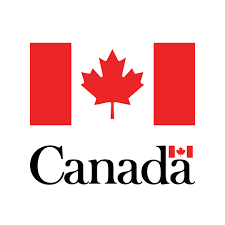
IP for Business
Canadian Intellectual Property Office (CIPO)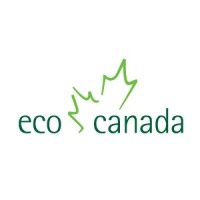
ECO Canada — Student Work Placement Program
ECO Canada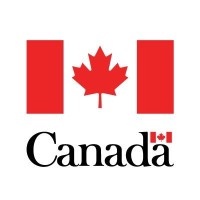
Enhanced Road Safety Transfer Payment Program (ERSTPP)
Transport Canada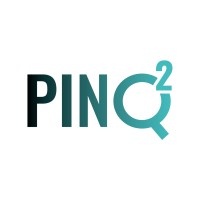
Digital and Quantum Innovation Platform — PINQ²
Plateforme d'Innovation Numérique et Quantique